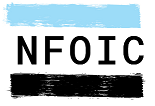
March 16, 2020
For Immediate Release
Contact: Daniel Bevarly
Executive Director, NFOIC
dbevarly@nfoic.org
352-294-7082
Fewer watchdogs, uncooperative public officials are biggest challenges to open government today, according to Open Government Survey
The news media has shown a declining interest and involvement in FOI litigation and legal actions. And while news media continue to make up the largest clients litigating public record lawsuits, for the first time since 2009, NFOIC’s Biennial Open Government Survey showed that members of the public outnumbered newspapers as the larger client group for attorneys pursuing open government cases.
“The impact from the decline in local and regional news media can be seen in the responses since the survey began in 2009,” said Daniel Bevarly, NFOIC’s executive director. “And the continual increases reported through the years in violations of state open government laws, while disturbing, are perhaps a related circumstance.”
Lack of funds and resources were cited as the number one reason for declining media interest and involvement in litigation, followed by a decline in the type of reporting that requires assertive legal action to gain access to information.
The deficiency of financial and other resources to pursue legal action when public agencies deny access has been consistently cited by survey respondents over the years. Another constant finding shows the biggest obstacle respondents said they faced in acquiring public information was a lack of response, a delayed response or no response. One survey respondent stated, public “entities know newspapers can’t afford to sue.”
Bevarly cited growing efforts to assist local news organizations with financial and in-kind backing to pursue lawsuits is a response to this trend. The Knight First Amendment Institute at Columbia University, the Reporters Committee for Freedom of the Press Local Legal Initiative and the Legal Clinic Fund from the Democracy Fund are recent examples.
“The demand has never been greater for access to state and federal (public) records being withheld,” wrote an attorney respondent. “Several years ago, I began to take on selected matters on a pro bono basis… I am doing more access work than ever before.”
Not only did survey respondents report a frustration with increased open government law violations, most cite a problem with a lack of enforcement or penalties for agencies and officials who violate them. Less than 13% of respondents reported a decrease in open records or open meetings violations in their jurisdiction over the past two years. One respondent suggested “there needs to be an outside party to oversee the (compliance) process and force everyone to follow the law.”
Growing reports of open records and open meetings violations is particularly troubling considering 57% of respondents reported an increase in making open government requests in state and local jurisdictions over the last two years.
Of the more than 100 survey respondents from across the U.S., nearly half were journalists and about one-fourth identified as state coalition members of NFOIC. Other self-identified stakeholder groups included attorneys, civic technologists, press association representatives and a handful of government agencies/elected officials. Thirty-five attorneys responded to the survey question about their client base.
This is the sixth biennial open government survey conducted by NFOIC. Its purpose is to identify current trends in public institutions for requesting and accessing public records. This survey provides important information suggesting needed reforms to improve public information management and access in state and local government.
Other findings:
-
Nearly 87% of respondents said the incidence of open records or open meeting violations in their state and local jurisdiction stayed steady or increased over the past two years.
-
More than half of respondents said government officials’ understanding of and voluntary compliance with open government requirements in their state and local jurisdiction decreased over the past two years.
-
Reported reasons for government agencies denying access to records varied, from disingenuous rationalization of exemptions to inappropriate game playing and ignorance of the law. The biggest obstacle respondents said they faced in getting information was a lack of response or delayed response (84%), followed by invalid exceptions (66%) and unreasonable fees (63%).
-
21% of respondents said there were worse policy reforms, amendments and legislative changes to public disclosure and open meeting laws affecting their state; 15% said it had improved.
-
As in past surveys, state and local law enforcement agencies continue to be the most challenging among government agencies to obtain public records (58.5%) according to the respondents.
To download the complete survey results, visit http://bit.ly/2019opengovsurvey.
Select quotes from respondents: https://www.nfoic.org/wp-content/uploads/2020-03/2019_OpemnGov_Quotes.pdf
If you know academics, journalists, government agencies or stakeholder groups who may be interested in open and transparent government on the state and local level, please share this research with them. We’re here to assist in the effort for improved records administration in cities and states across the U.S and look forward to hearing your feedback: nfoic@nfoic.org.
ABOUT NFOIC
The National Freedom of Information Coalition is a national nonprofit, nonpartisan organization of state and regional associations representing more than 37 states and the District of Columbia. Through our programs, services and national member network, NFOIC promotes press freedom, legislative and administrative reforms, dispute resolution to ensure open, transparent and accessible state and local governments and public institutions.
NFOIC is located at the University of Florida College of Journalism and Communications and works closely with its neighbor, the Brechner Center for Freedom of Information.
For more, visit www.nfoic.org.
